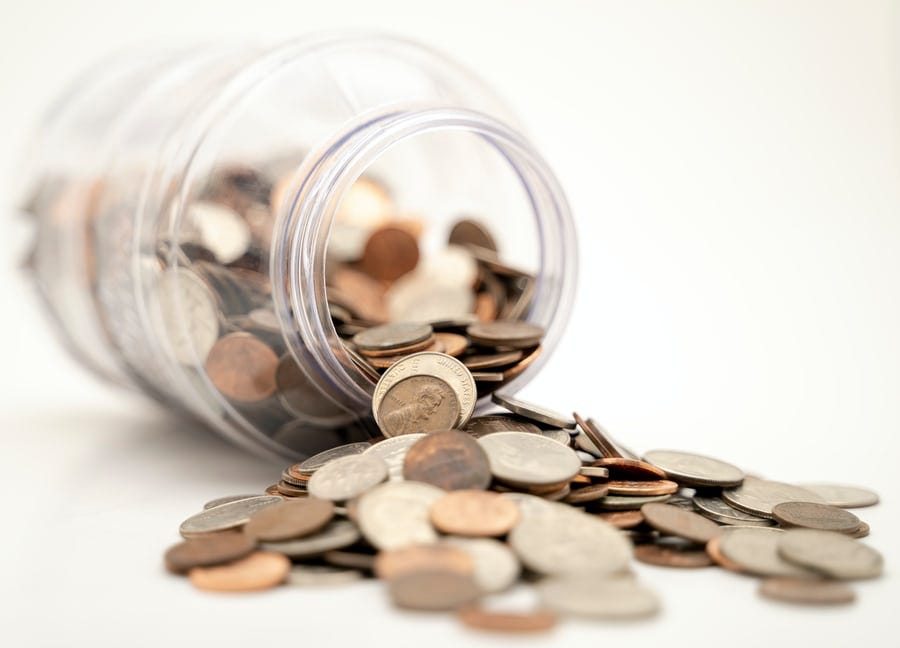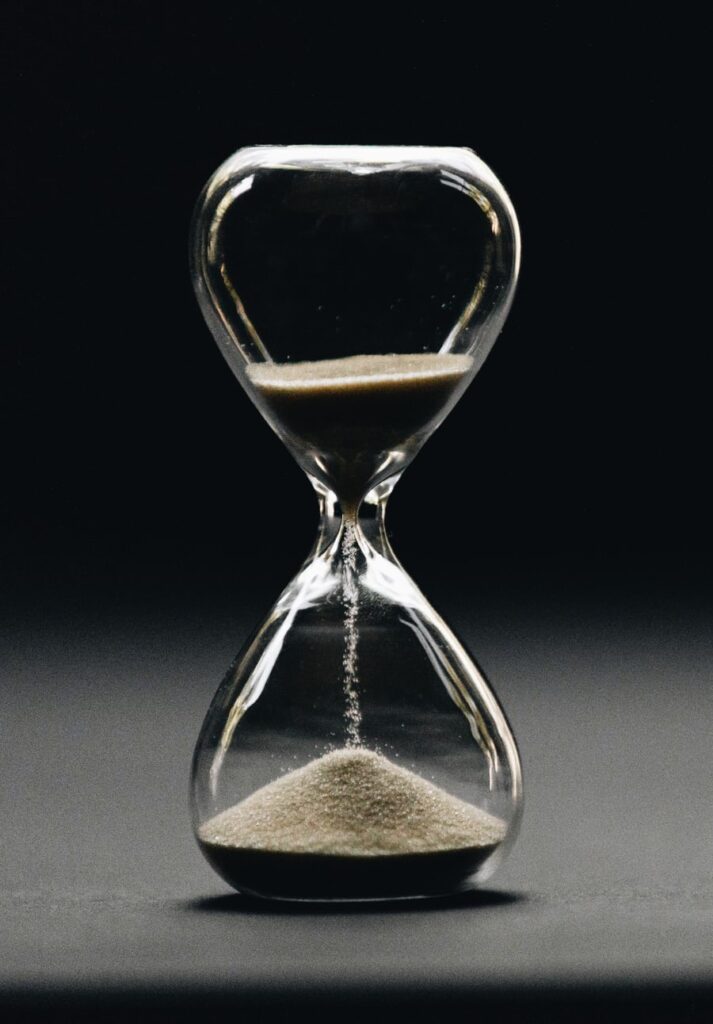The clock is always ticking, especially in the markets.
Time is our most precious resource because it is one of the few things that cannot be replenished or saved. If I had a superpower, it would be to teleport back into the past 7 years ago and quit social media earlier. It was the worst use of time, erased my precious teenage years, and I wish I had the guts to tell myself earlier that I would not only feel worse every time I somehow got myself to power off but I would also receive absolutely no benefit from it. There’s nothing I can do about this lost time so I can only focus on the present. At least our most drastic and worst moments teach us the best lessons.
Our time on this earth is finite. We don’t want to talk about what’s all on our calendars and we must soak up what we can with what we have today. This means starting earlier than later because what we should only regret is regret itself.
This current moment cannot come back and yesterday isn’t today. The compulsion to stay present, treasure every moment, banish multitasking, and ditch the screens have been common wisdom in this day in age as we are overstimulated, consumed, and burnt out.
The pandemic hasn’t fully receded and may never. Cases are coming back, Austria is in lockdown, thousands are dying daily, the winter season is fast approaching, and only 59% of the American population is vaccinated a little less than a year ago from when vaccines became available. From now on and possibly forever, we will have to adapt to a world that is conducive to this ongoing virus because it may never escape us. This also means we have to somehow take back our time that has been lost.
If y0u’re like me, my pet peeve is wasting time. Being bored is not my forte but I know whenever I get into the deprived exhausted boredom state, my best work comes out. My creativity, vision, and hope for the future comes alive and I’ve experienced a lot of these precious moments locked down at home these past few years.
Since none of us planned for this extra time at home, for those who were fortunate enough to have it, we didn’t expect to be able to take advantage of it in this way. Many of us felt pressurized to use it all before it abruptly erased. As a world, we felt a sense of ease and confidence to finally be able to tackle our bucket list and endless to-do list with the sensation to do even more, leading to more compulsion to get everything done and be productive instead of enjoying the moment.
Is it just me or is there always something to do at home? Whether it’s remodeling the kitchen or the dishes, chores are endless inside.
Even pre-pandemic Americans reported record levels of anxiety, stress, depression, fatigue, and exhaustion these symptoms have only proliferated during the pandemic.
Who would have thought that more time to be productive, not commute, save money, exercise, eat better, and finally have an excuse to be a homebody would mentally destroy us, especially introverts who would’ve seemed to thrive in this environment? I find I wasted more time at home with too much to do and too much time than when I had stringent time constraints and priorities. I felt selfish relaxing in lockdown since there was too much emptiness in my calendar that I needed to fill. The abundance and illusion of more time has lead many, including myself to make worse off decisions and become stumped in prioritizing what’s important. Less = More and it correlates with the bank account.

Moderate Money and Time
The ongoing talk on campuses doesn’t revolve around football anymore, it’s a mental health crisis fueled by the influx of social media and comparison leading to higher rates of drug abuse, suicide, and depression, the main culprits for premature death.
Too much of anything is a bad thing and being at home is included.
Whether or not you were able to take advantage of lockdown and possibly start 7 new side-hustles, a business, loose 60 lbs, and enrich yourself or not, be appreciative you made it out alive because millions didn’t.
Wasting time seemed to be much easier in this circumstance but the illusion of time and flexibility didn’t allow us to find a middle ground of enjoying it and being productive all the time. People who I’ve spoken with either felt drained and got less done during lockdown compared to pre-pandemic or got too much done that they don’t appreciate their sweat and tears today.
Money is the greatest stressor in American’s lives. Today, ⅓ rd of Americans say they are in the best financial position to date due to diligent spending, living below their means, watching their expenses like a hawk, setting up several passive income streams, devoting more attention to online resources and tools from freelancing to price flipping, consulting, coaching, creating content you name it.
Productivity was on the rise but slopped dramatically as happiness and fulfillment didn’t keep up.

Funny Money
Americans were able to catch up on their dues and reevaluate their living situation and financial lives because they had the time to do so. This is a proud moment for consumers’ bank accounts but overtime, will this pay off as Americans seem to absorb inflation at record levels and are revenge spending greater than ever before?
From the tourism to hospitality space, airline to retail industries, we were restricted from going anywhere, spending on experiences, and got the chance to redeem our financial lives this way until we couldn’t no more.
The truth is, most people don’t change until they have to and this leads money to be spent much more frivolously than time since it’s difficult to hold back when we know we’ve held up so well. Although time isn’t physical, with the record amount of spending, retail surge, and traveling, consumers seem to care less about their wallets than their time because they need to compensate for the amount saved which is a dangerous belief.
Time = Money
Every decision you choose to follow through with, you are sacrificing something else. This is opportunity cost and cannot be avoided since FOMO is endless. There is always something you should of, could of done but we cannot do everything.
It’s important to acknowledge that we have the control to shape our lives and that starts with what we prioritize. I like to think of choices as glass and rubber. The crucial choices that are most pressing that cannot be forgotten such as nourishing connections and prioritizing investing in myself are made of glass. If I don’t focus on them, they will crack and break as opposed to rubber choices such as reading that book for pleasure or catching up on a show, these are made out of rubber. They won’t break if they bounce or aren’t done right away.
Being mentally flexible instead of tough is important in this situation as well. We know we can’t do everything nor multitask so acknowledge what is in your control and what isn’t to get your time and money back. Training your brain to realize that everything will be okay if you do something different will keep you sharp, appreciative, and allow you to take the bigger picture. If you don’t get the ‘rubber’ activities done or check them off for today, nothing will break. This has helped me align on my goals, prioritize, and most importantly shape how I spend my time.
Money is easier to spend when you know you’ve taken good care of it and believe you need a reward. Time is harder since we believe it is free and doesn’t escape.
Just like blue is for boys and pink is for girls, time can be argued as a social construct, something we associate with money because it requires time to allow one’s earning to compound and become reinvested. Most people tend to neglect the fact that when we waste money, we are wasting time and when time is wasted, money follows.
Just like an overnight success takes 10 years, it takes time to grow returns and every time we choose to do something else, whether it be to propel our future or not, we are sacrificing our bank account in some way.
What I’ve uncovered over the years is that no matter how we spend our time, there’s no sure way to tell if it will help propel our future earnings or not. Most would agree that reading a book is better for development than watching Ted Lasso but forging those social bonds with people, having a good laugh, and keeping up with pop culture in order to initiate small talk can be more beneficial than sticking your head in another self-help book, especially if you can’t apply any of those lessons to your life.
Is a waste of time really a waste of time then? Money seems to be more discrete and obvious.
It’s all personalized and up to interpretation.
When we look at how we use our time, we must assess what is useful and practical. Self-help sells really well and so does Ted Lasso on Netflix but which one do you think would help in your life later on?
Usually the answer is unknown until it comes up in the most random places.
To say that time is easier to waste than money can be true in some regard but in other cases, money is much easier when pent-up demand and limitations are evident. Whichever belief you may hold, prioritizing your time before money is the first step. Just like time in the market beats timing the market, being aware of your time and not having the compulsion to use every second of it or tie it down to money can in hindsight make you more down the road.
Don’t become obsessed with using every penny or every second of your time. Sometimes it’s necessary to make mistakes and waste time to learn what’s important and get out of our head.
Time is finite and money is abundant is a better way of thinking.

